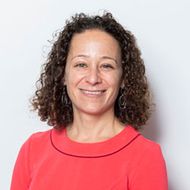Development Trends in Online Education Market Discussed at eSTARS 2021 Conference

The leaders of Russian and global EdTech companies met to discuss industry evolution, explain why demand for non-digital professions on platforms keeps growing, and speak about building online learning with a human touch. A panel discussion on ‘Trends in the Development of the Online Education Market’ was held as part of the eSTARS 2021 international conference organized by HSE University and Coursera.
A Platform for Individuals
Experts say that over the last five years, the global online education industry has seen the development not only of content-delivery technology, but markets, business models and product formats. According to Dmitry Krutov, founder and CEO of Skillbox, his company spurred a mass transition of professions to an online format: not only in IT, but in fields as varied as interior design, catering and floristry. These ‘non-digital’ professions are now the platform’s leaders in terms of growth rate.

Dmitry Krutov
‘Importantly, we are transitioning from “trending” IT topics to things that are really interesting to specific individuals. Many come to Skillbox to learn software development because they think it is the only field they can earn money in, even if they are not really interested in it, or they are willing to become data scientists with no basic knowledge of maths and no interest in STEM fields. In cases like this, we offer them a change of trajectory free of charge to find a profession they like. The list of areas is expanding; platforms are starting to move towards their consumers. It is important not to impose something that sells well, but to help students get value from their learning and build a career in an interesting sphere,’ Mr. Krutov said.
Dmitry Krutov believes that one highlight of the online learning era is the consumption of content as edutainment—for enjoyment, expanding one’s outlook, and getting expert information without an intention to move into a new profession. 90% of platform users already have a degree and want to obtain new knowledge that is not always applicable. Mr. Krutov emphasized that the quality of online education is not always about satisfaction with its contents, but also the level of knowledge the student gets.
When it comes to customer experience analysis in online education, superficial interviews and traditional e-commerce business metrics do not work; they are more focused on confirming the quality of a product team’s work and do not consider the user’s opinion. Measuring satisfaction among students of online courses is the goal of in-depth interviews, which have only recently become a tool for analyzing the success of a platform. Mr. Krutov said that 90% of Russian universities face the problem of a lack of analytical data, including in the case of educational products.
It is important not to impose something that sells well, but to help students get value from their learning and build a career in an interesting sphere
Alexander Laryanovsky, Managing Partner and Business Development Director of Skyeng, observes two global macrotrends that are relevant not only to online education: ‘The first is related to society’s demand for individualization—all industries are moving in this direction, but at different speeds. Streaming service algorithms mean that we no longer think about music in terms of albums and we only listen to the songs we like. DNA sequencing in medicine helps to make diagnoses that take into account the features of a specific patient. The same is happening in education. We must understand that we don’t teach people, but individuals. The second macrotrend is the demand for self-fulfilment. In times of plenty, everyone starts to think about how to maximize their happiness. I believe that the success of EdTech is in meeting people’s need to spend time on themselves: not spend a lot of time, but spend it productively.’

Jennie Drimmer
Jennie Drimmer, Senior Director of Enterprise of EMEA at Coursera, also noted the widespread trend for personalization and individualization of educational trajectories. The active use of AI and big data analysis helps platforms in this regard. To remain competitive, Coursera is constantly expanding its educational portfolio and cooperates with digital leaders such as Google, IBM and Facebook.
Last year, six million students earned degrees via online learning. Platforms meet consumers’ demand for continuous updating of competencies and getting a degree remotely, and there has been an unprecedented growth of options in degree categories. The number of programmes from the world’s leading universities on Coursera has grown from 12 to 33 since 2018. Coursera’s nearest competitor, edX (a joint educational project by MIT and Harvard that was sold to 2U, an online learning provider, this year) confirms this trend: in 2017, only one master’s programme was offered on the platform, while there were 13 in 2020. In addition, a new patented online product appeared on the platform last year: the ‘micro bachelor’s degree,’ an alternative to expensive and long-lasting college degrees. The market for microdegrees is expected to grow sixfold by 2025, to $117 billion.
Long-Term Online Studies
Marianna Snigireva, CEO of Netology, also observes the transformation of online learning with a clear trend for longer terms of education. She said that Netology, one of Russia’s first EdTech companies, offered two-month marketing courses a few years ago, in contrast to the traditional educational system. But users of the platform eventually realized that it is impossible to train in professions such as data scientist in a few months.

Marianna Snigireva
The audience had an opportunity to invest much more time in online education, so the length of courses on Netology gradually increased to six months, then to two years. Platforms initially aimed at offering short, concentrated formats are now delivering more extended content. Starting from simple webinars that implemented on-site learning in an online form, market players moved on to different tools and opportunities: quizzes, simulators, and content split up into short five-minute modules that allow Netology to hold the audience’s attention. Marianna Snigireva believes that the number of online formats will grow and depart further from on-campus practices.
Accessible Digitalization
Speaking about digital inequality, another topic of the opening plenary session, the participants said that only one million people worldwide can afford online learning due to their workload and limited financial capabilities. According to Alexander Laryanovsky, platforms should invest in people in order to help them solve their tasks.
HSE University’s cooperation with Coursera is socially oriented. HSE’s 150 open online courses on the platform have been taken by over 4.5 million times by students from 195 countries. Future students have an opportunity to take many different courses before applying to university and paying expensive fees, which allows them to find out whether they are interested in the subject area and whether it is worth spending the next four years of their lives on it. School students learn about professional models that they don’t see in their everyday lives—a brilliant linguist might grow up in a family of doctors. Open content makes university walls transparent, demonstrates the lecturers’ professionalism and methods, and showcases the strong and weak sides of their programmes.
According to Evgenia Kulik, Director for eLearning at HSE University and moderator of the discussion, prospective students and their families have a hard time assessing the quality of educational organization at a university, so they instead focus on its brand.

Evgenia Kulik
‘A good university is always based on deep research and conveys unique expert content. Collaboration between EdTech companies and universities is mutually profitable: online students study at a university with a trustworthy brand and reputation, and also get access to expertise from an industrial partner with strong digital competencies, user support and up-to-date customer services. Universities and platforms can and should reinforce each other,’ she said.

Alexander Laryanovsky
Alexander Laryanovsky agreed with his colleagues: ‘EdTech organizations come to universities in order to associate themselves with a brand, ‘legitimize’ themselves, and get academic backing for their content. In exchange, they provide competencies that universities (be it Harvard or HSE University) are lacking—first and foremost, the ability to scale.’ Dmitry Krutov added: ‘Synergizing with universities will allow us to make completely new products.’
Economics of Growth
Analytical agencies claim that the online learning market is set to grow by $1 trillion USD. In developing countries, this is motivated by intensive population growth, which naturally drives demand. In developed countries, it is motivated by unprecedented demand among ‘digital’ employers for continuing education and retraining.
СAccording to data by the International Economic Forum, 150 million professionals will lose their jobs due to automation in the next four years. Rapid digitalization is changing the landscape of the job market: 40% of skills that professionals have today will not be relevant tomorrow.
The World Economic Forum outlined the key professional fields for the job market of the future: data analysis and artificial intelligence, engineering and cloud technologies, product development, sales, marketing, content management, as well as the care economy, the green economy and culture. In total, these professions will provide 6.1 million jobs in the coming few years. Most digital professions can be mastered online from anywhere in the world. According to Jennie Drimmer, the challenge for online education operators is to make sure everyone can update their knowledge and remain in demand on the labour market. These issues must be solved at the level of universities, corporations and governments.
To eliminate digital barriers, Netology participates in a federal project and is preparing six thousand professionals for the digital economy, Marianna Snigireva said. Most of the project’s participants are senior citizens from non-capital regions, many of whom have mastered the basics of computer literacy (including web search and mobile app installation) from scratch. ‘Having educational programmes that are half funded by the government is a big step that benefits the population,’ she said.
Prepared by Ekaterina Zinkovskaya, HSE eLearning Office
Evgenia Kulik
See also:
‘We Are Witnessing an Educational Revolution That Goes Beyond Universities’
Higher education has special value in the dynamically changing world of highly competitive labour markets. Employers care not only about diplomas, but also about the quality and relevance of the knowledge and skills gained from university. Online learning has become ‘the new normal’ in education—a minimum prerequisite. These issues were discussed by experts during the eLearning Stakeholders and Researchers Summit (eSTARS 2021) organised by HSE University in cooperation with Coursera.
New Educational Revolution: Russian and Global Online Learning Trends Discussed at eSTARS 2021
eSTARS 2021, an international online conference organized by HSE University in partnership with Coursera, has taken place for the fourth time, attracting more than 1,300 participants from about 50 countries. Participants included education administrators, academic leaders, and representatives of leading EdTech companies. The conference featured about 100 research presentations.
Seven Days Until eSTARS 2021 International Academic Conference
On December 1st and 2nd, 2021, the eLearning Stakeholders and Researchers Summit (eSTARS 2021), an international online conference organized by HSE University in partnership with Coursera, will take place. eSTARS will discuss pressing issues facing universities today in the context of the growing interdependence of digital technology, the economy and education.
Applications to Speak at eSTARS 2021 Conference Accepted Until November 15
HSE University and Coursera are bringing together the world’s leading researchers, professionals, education and technology leaders, and business community representatives for the fourth international research conference eLearning Stakeholders and Researchers Summit 2021 (eSTARS). This topic of this year’s summit, which will run from December 1–2, 2021,is ‘Digital Transformation: Global Challenges to the Education System’.


